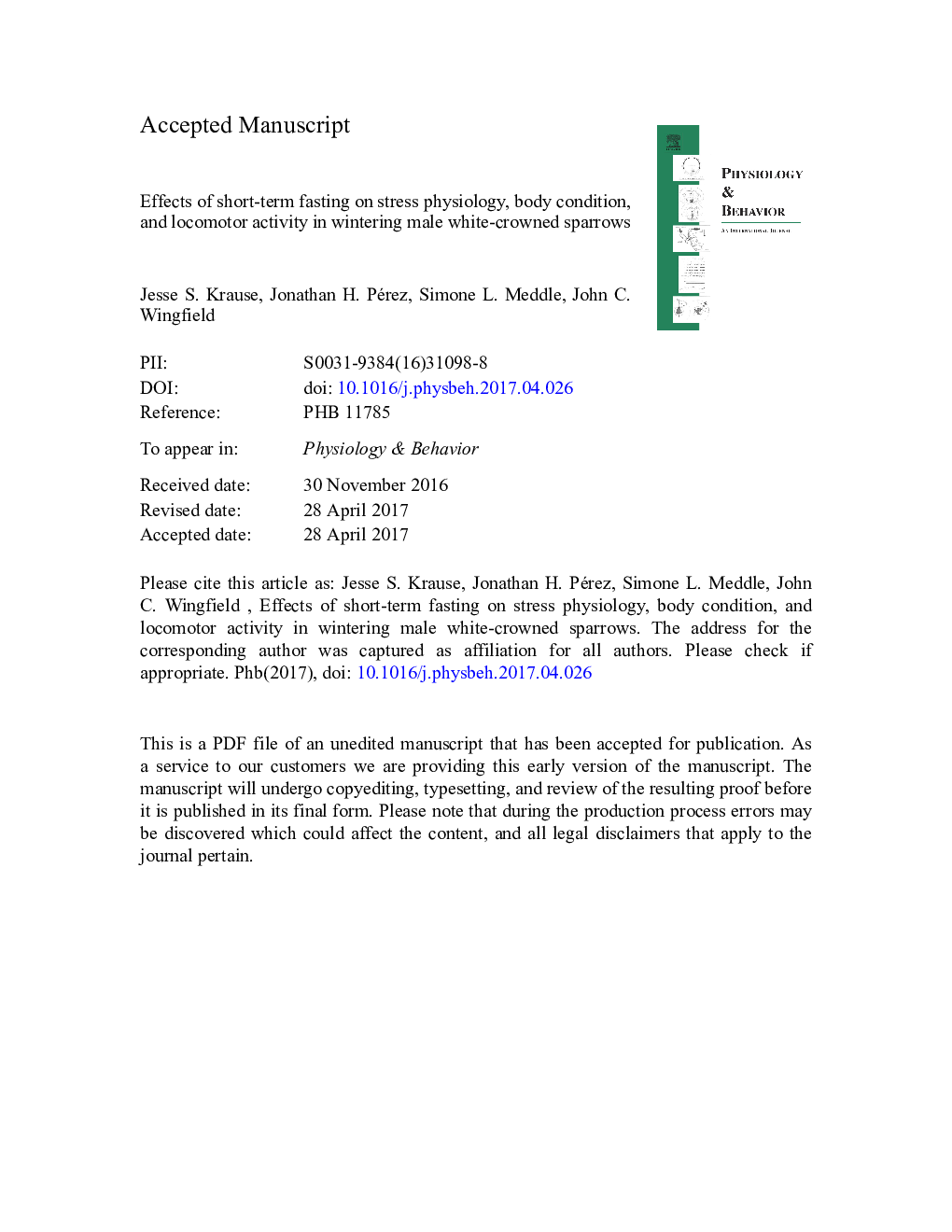| Article ID | Journal | Published Year | Pages | File Type |
|---|---|---|---|---|
| 5593753 | Physiology & Behavior | 2017 | 37 Pages |
Abstract
For wild free-living animals the availability of food resources can be greatly affected by environmental perturbations such as weather events. In response to environmental perturbations, animals activate the hypothalamic-pituitary-adrenal (HPA) axis to adjust physiology and behavior. The literature asserts that during weather events food intake declines leading to changes in HPA axis activity, as measured by both baseline and stress-induced glucocorticoid concentrations. Here we investigated how body condition, locomotor activity, and stress physiology were affected by varying lengths of a fast (1, 2, 6, and 24Â h; similar to that experienced by free-living birds) compared to when food was provided ad libitum in captive wintering male white-crowned sparrows, Zonotrichia leucophrys gambelii, exposed to a short day photoperiod. Baseline corticosterone concentrations were increased for all fasting durations but were highest in 6 and 24Â h fasted birds. Stress-induced corticosterone was elevated in 1Â h fasted birds with a trend for the 2Â h of fast; no other differences were found. Baseline corticosterone concentrations were negatively related to both total fat scores and body mass. All birds lost body mass regardless of fast length but birds fasted for 24Â h lost the most. Fat scores declined in the 6 and 24Â h groups, and no measureable changes were detected in pectoralis muscle profile. Locomotor activity was increased over the entire period in which food was removed regardless of fasting duration. Together this suggests that reduced food availability is responsible, at least in part, for the rapid elevation both baseline corticosterone under any duration of fast and stress-induced concentrations during short-term fasts.
Related Topics
Life Sciences
Biochemistry, Genetics and Molecular Biology
Physiology
Authors
Jesse S. Krause, Jonathan H. Pérez, Simone L. Meddle, John C. Wingfield,
